The Role of Micro Minerals in Poultry Nutrition and Health
The Role of Micro Minerals in Poultry Nutrition and Health
Micro minerals, also known as trace minerals, are essential nutrients required in small quantities but play a vital role in maintaining optimal poultry health, growth, and productivity. These micronutrients act as catalysts in various physiological and biochemical processes, ensuring the overall well-being and performance of birds. This article delves into the importance of micro minerals in poultry nutrition, highlighting their functions, deficiency symptoms, supplementation strategies, and recent advancements in research.
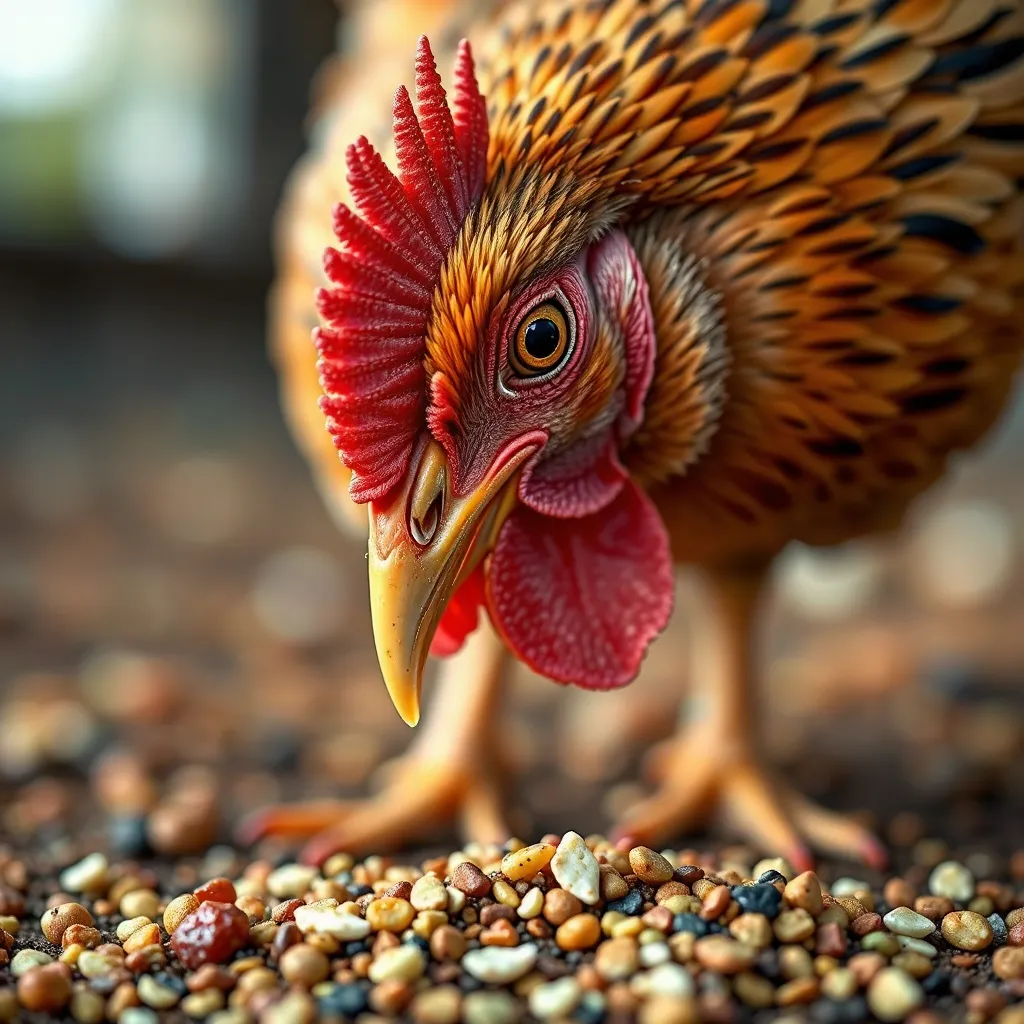
Key Functions of Micro Minerals in Poultry
Several micro minerals contribute significantly to poultry health. Here’s a breakdown of their individual roles:
-
Iron (Fe): Crucial for oxygen transport through hemoglobin and plays a vital role in energy metabolism. Iron deficiency leads to anemia, stunted growth, and reduced productivity. Sources include premixes, fortified feeds, and meat and bone meal.
-
Zinc (Zn): Essential for feather development, enzyme activation, and a robust immune response. Zinc deficiency results in poor growth, dermatitis, and weak eggshells. Supplementation is often provided through zinc oxide, sulfate, or chelates.
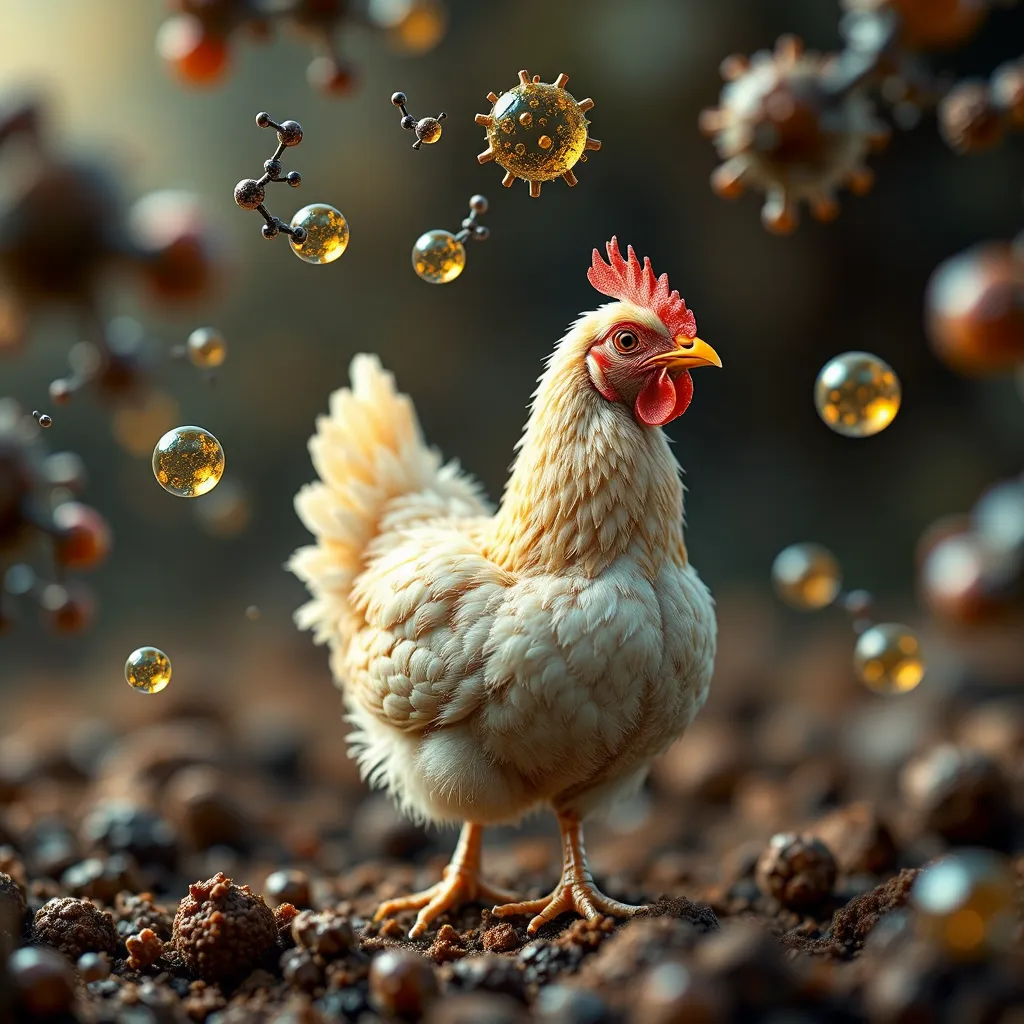
-
Copper (Cu): Acts as an enzyme cofactor, contributes to melanin production, and plays a role in iron metabolism. Copper deficiency can cause anemia, weakened bones, and cardiovascular problems. Copper sulfate and oxide are common supplemental forms.
-
Selenium (Se): A powerful antioxidant as part of glutathione peroxidase, protecting cells from damage and supporting immune function. Selenium deficiency can lead to exudative diathesis and pancreatic fibrosis. Sodium selenite and organic selenium are common sources.
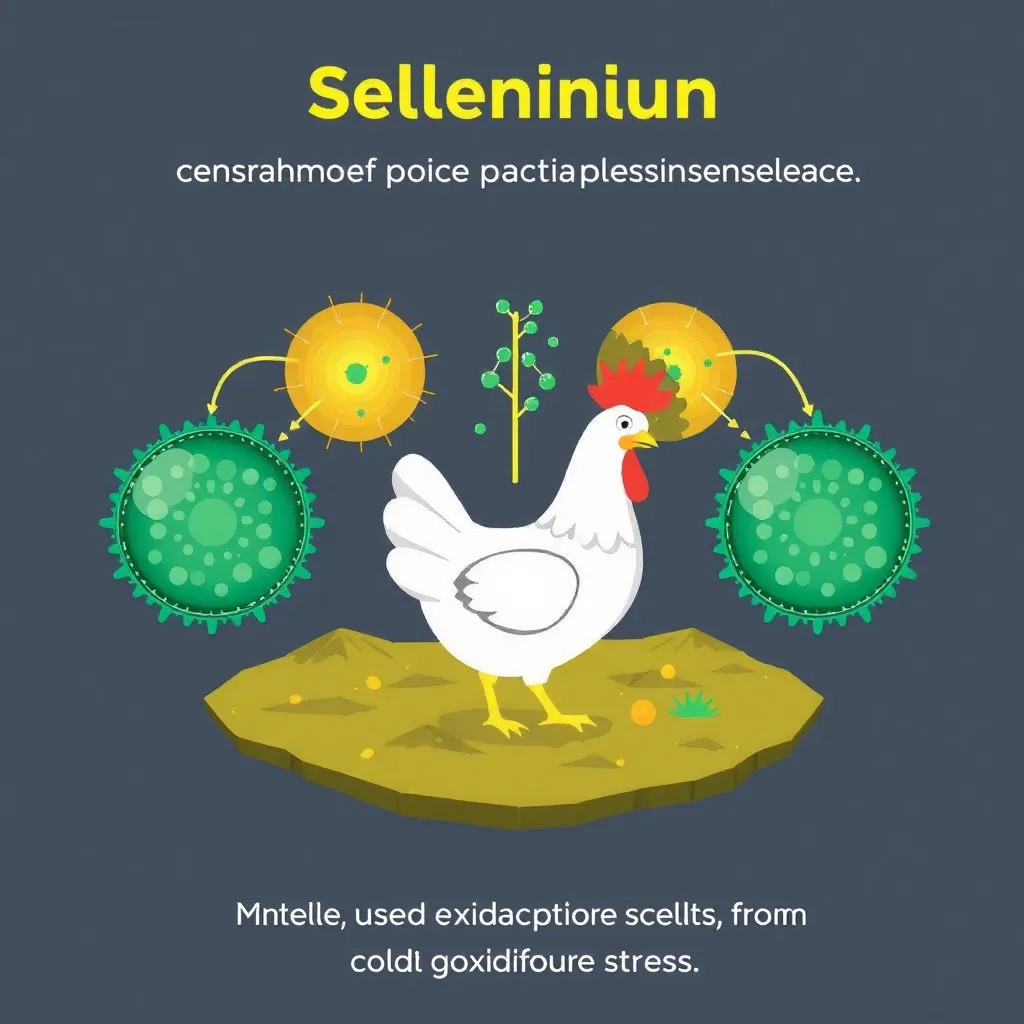
-
Manganese (Mn): Vital for bone development, enzyme activation, and reproduction. Manganese deficiency can result in perosis (slipped tendon) and thinned eggshells. Manganese sulfate and oxide are typically used for supplementation.
-
Iodine (I): Essential for the production of thyroid hormones, which regulate metabolism. Iodine deficiency can lead to goiter, reduced growth, and reproductive issues. Iodized salt and potassium iodide are common sources.
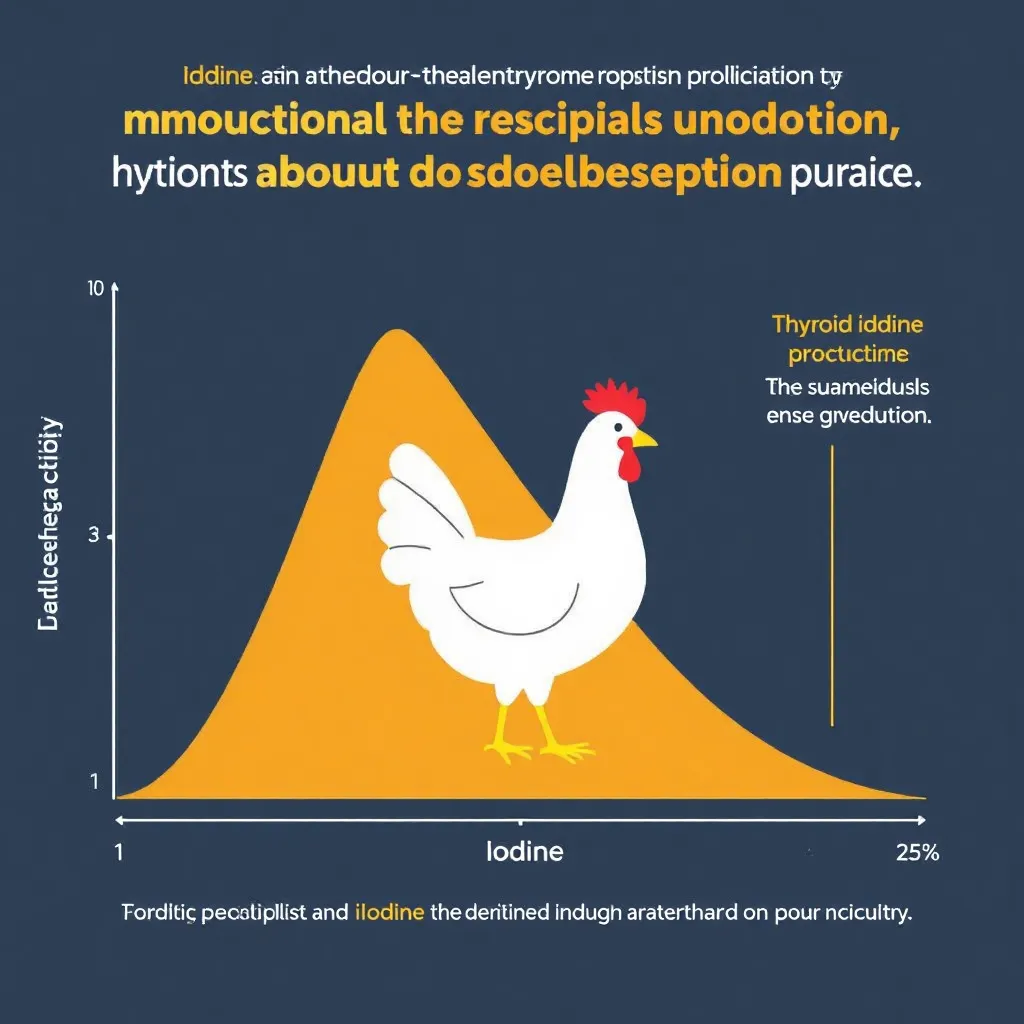
-
Chromium (Cr): Plays a role in stress reduction and glucose metabolism. Chromium deficiency can negatively impact performance, particularly under heat stress. Chromium picolinate and yeast are common supplemental forms.
-
Cobalt (Co): Indirectly involved in vitamin B12 synthesis, which is crucial for various metabolic processes. Cobalt deficiency can lead to reduced appetite and growth. Cobalt chloride and sulfate are commonly used in supplements.
Importance of Micro Minerals in Poultry
Micro minerals contribute to various aspects of poultry health and production:
-
Growth and Development: Micro minerals play structural and metabolic roles, ensuring proper growth and development of bones, tissues, and organs.
-
Egg Production and Quality: Adequate micro mineral intake supports strong eggshells, consistent laying, and overall egg quality.
-
Immune System: Several micro minerals boost the immune system, enhancing disease resistance and reducing mortality.
-
Feed Conversion Efficiency: Micro minerals optimize nutrient utilization, leading to improved feed conversion efficiency and reduced feed costs.
Supplementation and Bioavailability
Micro minerals can be supplemented in various forms:
-
Inorganic: These include sulfates and oxides, which are generally less bioavailable than organic forms.
-
Organic: Chelates and proteinates offer better bioavailability, meaning they are more readily absorbed and utilized by the body.
Factors influencing bioavailability include:
-
Phytates: Phytates present in feed can bind to minerals, reducing their absorption.
-
Phytase Enzyme: Supplementing phytase can break down phytates, improving mineral utilization.
Deficiency Symptoms in Poultry
Recognizing deficiency symptoms is crucial for timely intervention:
- Iron: Anemia, lethargy, pale combs and wattles.
- Zinc: Poor feathering, skin lesions, weak beaks and claws.
- Copper: Bone fragility, poor pigmentation, and cardiovascular issues.
- Selenium: Muscular degeneration, reduced hatchability, and exudative diathesis.
- Manganese: Perosis (slipped tendon), shortened and thickened legs, and reduced eggshell thickness.
Toxicity Concerns
While essential, excessive supplementation of micro minerals can lead to toxicity, negatively impacting liver function, growth, and overall health. It’s crucial to adhere to recommended dosage guidelines.
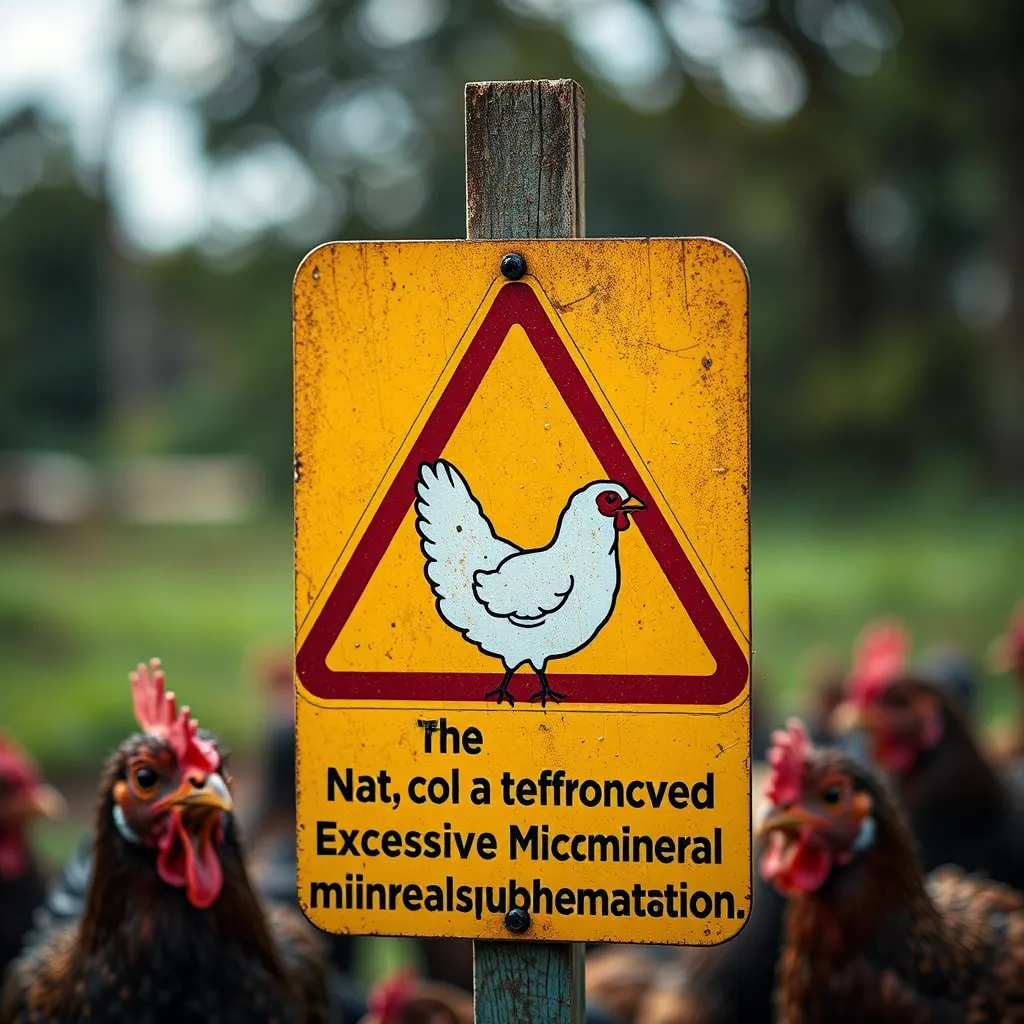
Advances in Micro Mineral Research
Ongoing research continues to refine our understanding of micro minerals in poultry nutrition:
-
Nanotechnology: Nanoparticles offer the potential for more efficient delivery and absorption of micro minerals.
-
Heat Stress Mitigation: Studies are exploring the role of micro minerals in alleviating the negative impacts of heat stress on poultry.
-
Immune Function Enhancement: Research is ongoing to understand how micro minerals can further enhance immune function and disease resistance.
-
Organic Mineral Supplements: The use of organic mineral sources is gaining traction due to their enhanced bioavailability and potential benefits for sustainability and productivity.
Conclusion
Balanced micro mineral supplementation is paramount for optimal poultry health, growth, and productivity. Careful consideration of mineral forms, bioavailability, and potential interactions is essential for developing effective and safe feeding strategies. Prioritizing high-quality feed formulations ensures adequate micro mineral intake and supports the overall well-being of poultry flocks.
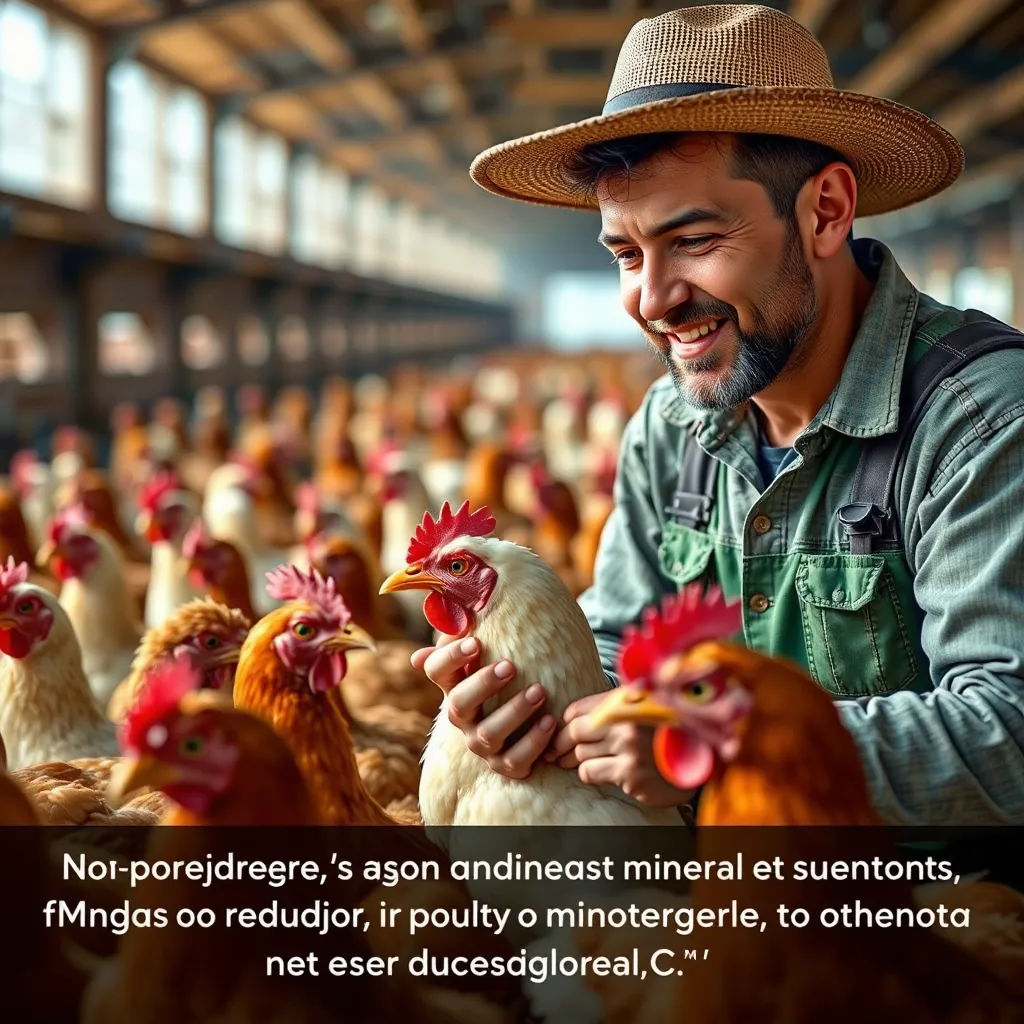
FAQ
Q: What are the most important micro minerals for laying hens?
A: Manganese, zinc, and selenium are particularly critical for laying hens, supporting strong eggshells, consistent egg production, and overall reproductive health.
Q: How can I determine if my flock has a micro mineral deficiency?
A: Look for specific deficiency symptoms such as poor feathering, leg deformities, or pale combs and wattles. Consult a poultry nutritionist for diagnosis and appropriate supplementation strategies.
Q: Are organic minerals better than inorganic minerals?
A: Organic minerals generally have better bioavailability, meaning they are more easily absorbed and utilized by the bird. However, the best choice depends on specific circumstances and cost considerations.
Q: Can I over-supplement micro minerals?
A: Yes, excessive supplementation can lead to toxicity. Always follow recommended dosage guidelines and consult a poultry nutritionist for optimal supplementation strategies.
References
- National Research Council. (2019). Nutrient Requirements of Poultry: Ninth Revised Edition. The National Academies Press.
- Leeson, S., & Summers, J. D. (2005). Commercial poultry nutrition. University books.
#notes






